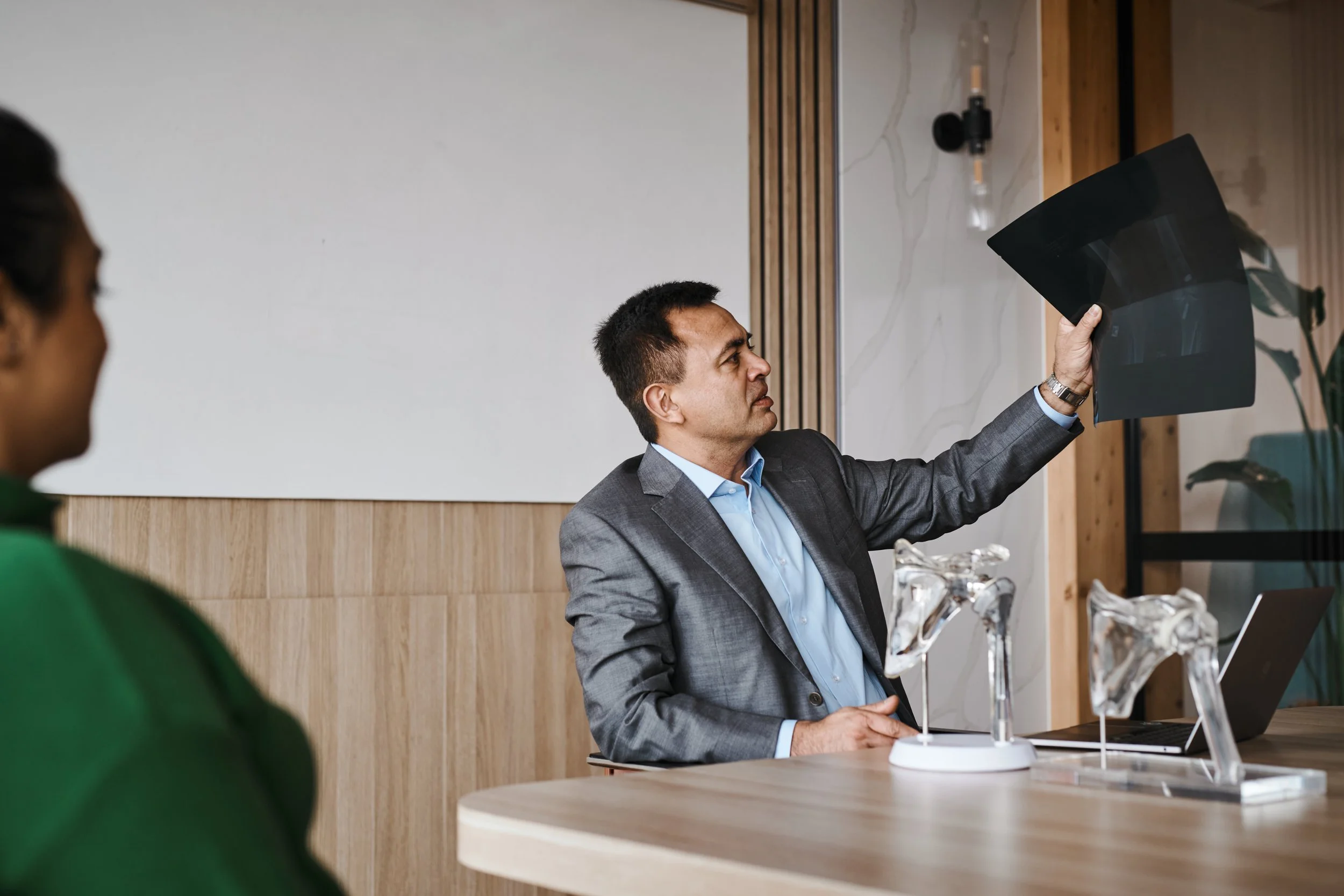
Philosophy of Care
“My mission is to restore function, relieve pain, and improve quality of life, combining modern surgical science with genuine compassion.”
Dr Manish Gupta is known for treating every patient as a member of his own family. He takes time to ensure patients understand their diagnosis and feel confident in their treatment plan. He offers the following:
Thoughtful, accurate diagnosis.
Non-surgical care where possible.
Surgical precision when needed.
Personalised rehabilitation protocols.
Long-term partnership through recovery.
Conditions we treat
-
Rotator cuff tears are among the most common causes of shoulder pain and weakness. These tears can result from wear and tear over time or from a sudden injury. Symptoms include difficulty lifting the arm, night pain, and a dull ache in the shoulder.
Diagnosis is made through physical examination and imaging such as ultrasound or MRI. Treatment options range from physiotherapy and injections to arthroscopic (keyhole) surgical repair. In cases where the tendon is not repairable, Dr Gupta may discuss tendon transfers or reverse shoulder replacement.
-
Frozen shoulder leads to pain and significant stiffness in all directions of movement. It usually develops gradually and can last many months. It’s common in people with diabetes or after periods of immobilisation.
Initial treatment includes physiotherapy, anti-inflammatory medication, and sometimes hydrodilatation injections. If stiffness persists, Dr Gupta may offer arthroscopic capsular release to improve movement.
-
Arthritis causes cartilage breakdown, leading to pain, grinding, and loss of motion. Simple tasks like reaching or dressing become difficult.
Treatment includes medications, injections, physiotherapy, and, ultimately, shoulder replacement surgery. Dr. Gupta performs both anatomic and reverse shoulder replacements, including the use of custom implants and computer navigation when needed.
-
Recurrent dislocations are common in younger patients and athletes. Symptoms include pain, a sensation of instability, or the shoulder 'popping out'.
Dr Gupta offers arthroscopic stabilisation or, in cases of bone loss or other complex considerations, the Latarjet procedure or other advanced techniques. Rehabilitation is essential to full recovery.
-
AC joint injuries cause pain on top of the shoulder, especially when lifting or crossing the arm. Initial treatment includes rest, anti-inflammatories, injections and physiotherapy. Surgery may be needed for persistent or severe injuries.
For arthritis, Dr Gupta may perform a minimally invasive excision of the damaged end of the collarbone.
-
This condition presents with front shoulder pain, weakness, or a noticeable bulge (“Popeye muscle”).
Mild cases improve with rest and physiotherapy. In acute or severe cases or ruptures, Dr Gupta may perform a tenodesis to reattach the tendon securely.
-
These overuse injuries affect the elbow tendons, causing pain when gripping or lifting. Most patients improve with physiotherapy, bracing, and injections. When symptoms persist, surgery is offered, with excellent results.
-
Causes include osteoarthritis, previous injuries, or inflammatory diseases. Patients struggle with bending or straightening the arm.
Treatment ranges from physiotherapy and injections to arthroscopic debridement or elbow replacement in advanced cases.
-
These conditions cause the elbow to feel unstable, particularly with pushing or load-bearing. Treatment includes bracing, physiotherapy, and surgical ligament repair when needed.
-
A sudden tear of the biceps near the elbow causes weakness in lifting and turning the palm. Surgery is typically recommended to restore function.
-
Patients experience locking, catching, or clicking in the elbow. Small fragments in the joint or cartilage damage cause these. Keyhole surgery is usually effective for removing debris and stimulating cartilage healing.
-
Swelling at the back of the elbow may be due to bursitis. Treatment includes rest, drainage, antibiotics (if infected), or minor surgery for persistent cases.
-
Fractures are treated based on type and severity. Dr Gupta provides both non-operative and surgical options including plating, screws, and joint replacement where needed. Early mobilisation and coordinated rehab are key to good recovery.
Get in touch.
To make an appointment with Dr Manish Gupta call our reception on 02 9687 8344 or complete the form below.

